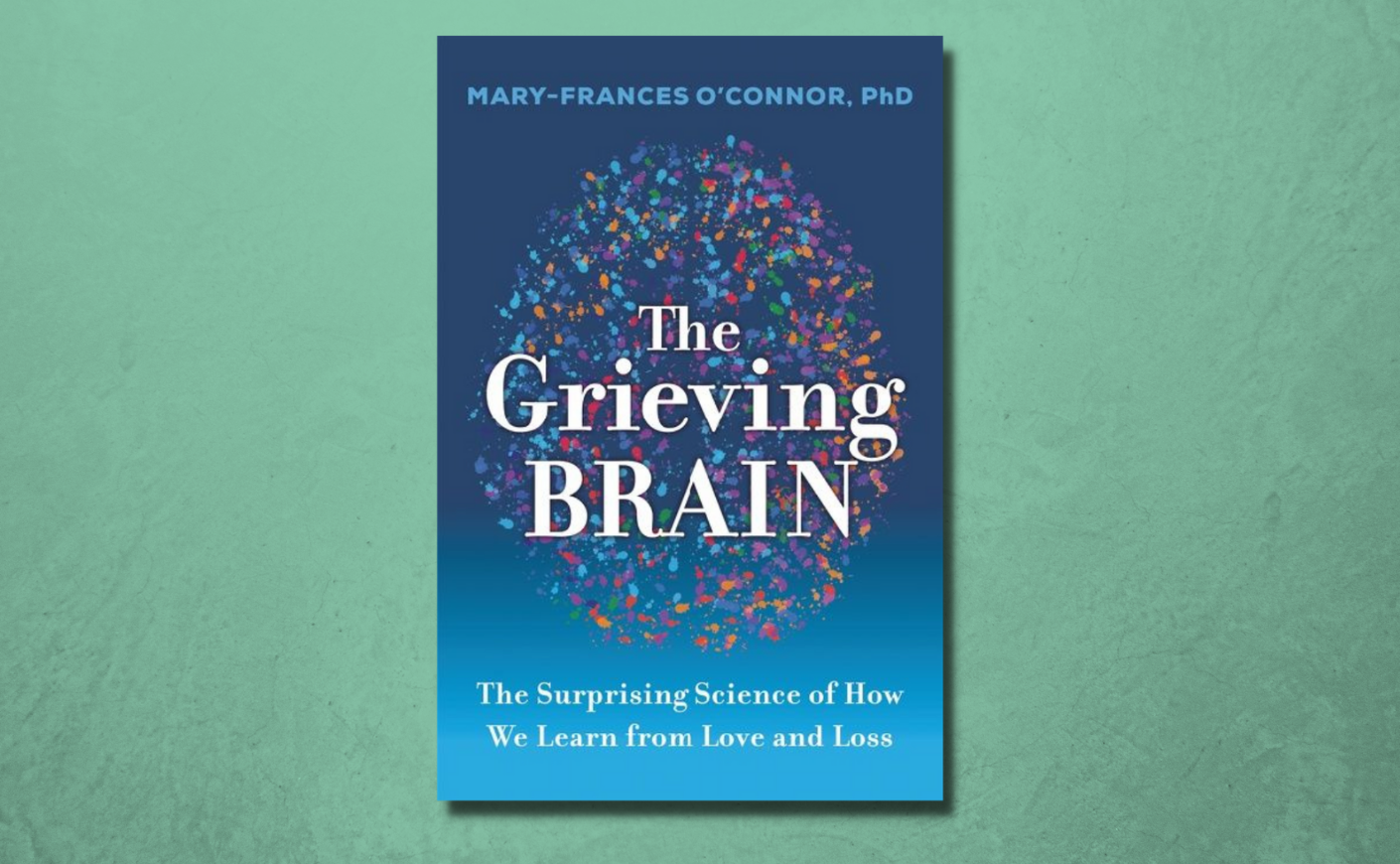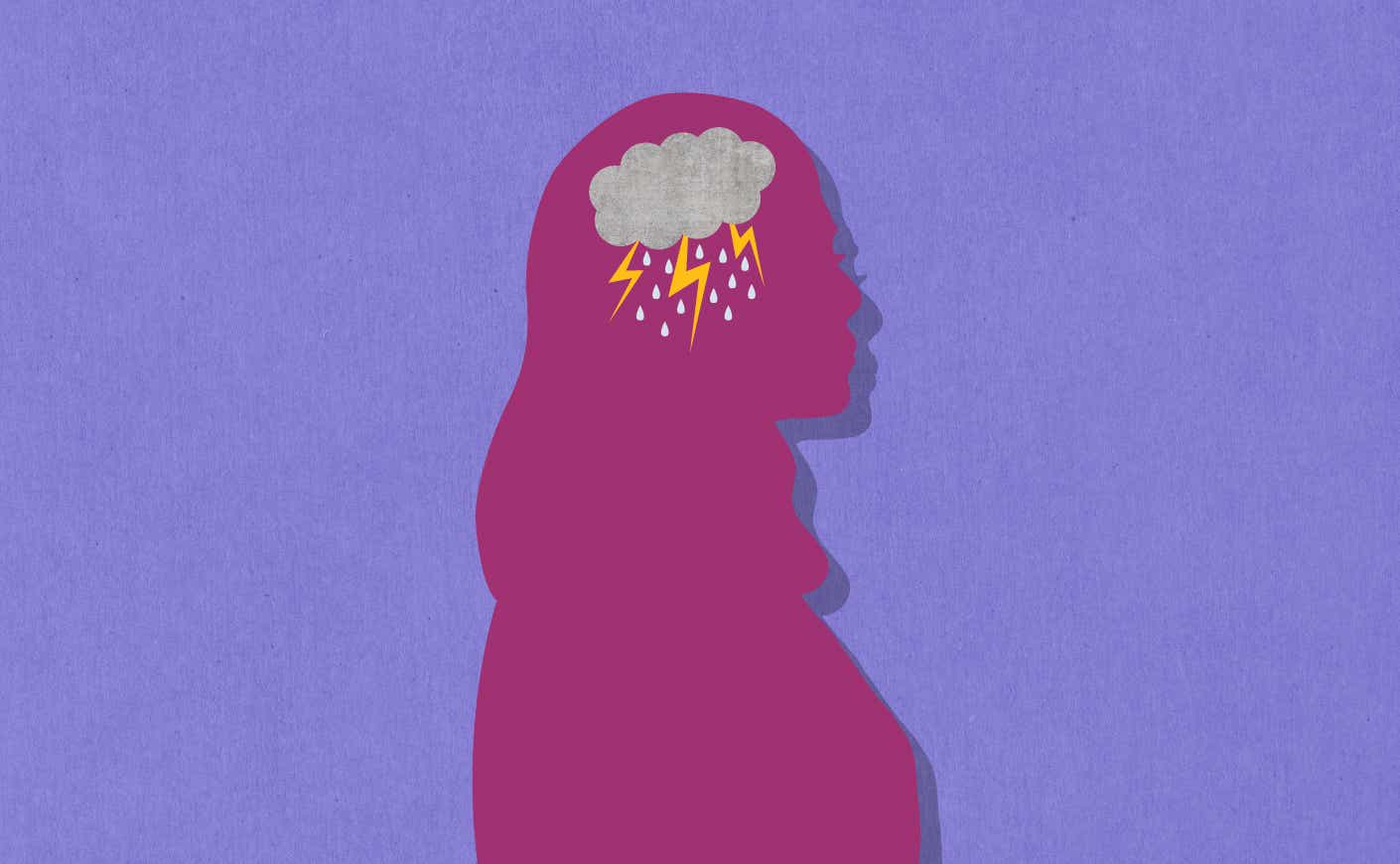We’ll never know for sure what happens after death, but anyone who’s lost a loved one is certainly familiar with the complicated feelings that plague those who are left behind.
Mary-Frances O’Connor, Ph.D., studies those complex feelings for a living. She’s the director of the Grief, Loss and Social Stress Lab at the University of Arizona, and she’s written an insightful book called The Grieving Brain: The Surprising Science of How We Learn from Love and Loss. It’s a fascinating look at what goes on inside our minds when we lose someone special, and O’Connor hopes that understanding these neurological mechanisms will help readers find the path to recovery after the worst has happened. Needless to say, there’s a lot to unpack.
“Human beings are so complex, and our love for every person that’s in our life is so complex, so it shouldn’t totally surprise us that grief is complex as well,” Dr. O’Connor says.
Below, she explains a few of the eye-opening insights you’ll find in The Grieving Brain.

There’s an important difference between grief and grieving
“Grief is that feeling that just knocks you off your feet — the wave of sadness that overtakes you,” Dr. O’Connor explains. “Grieving, on the other hand, is the way that experience of grief changes over time, without ever going away.”
The key to that distinction is the part about changing through time. Dr. O’Connor says it’s important to remember that “adjusting” to a loss doesn’t mean you’ll never feel that pang of sadness again — even decades later. But the process of grieving shows us that eventually we’ll acquire the tools to navigate those difficult feelings without being completely paralyzed by them.
“The first 100 times, you get knocked off your feet by grief. It’s just awful. And then the 101st time, it’s still awful, but it may be familiar. Or you may know that, although it’s awful, you are going to get through this moment,” Dr. O’Connor says.
Differentiating between immediate, raw grief and long-term grieving is also helpful in giving people a better understanding of how their feelings will evolve.
“I recognized that people were asking me, ‘When will this be over?’ The ‘over’ part was that they had this idea that the waves of grief would go away,” Dr. O’Connor says. “By making the distinction between grief and grieving, I was able to communicate to them that even if it doesn’t ever go away, it doesn’t mean that it won’t also change over time so that you can live with it.”
Grieving is like learning
One crucial factor that dictates our response to the death of a loved one has to do with an essential function of our brain. Dr. O’Connor calls it our “prediction organ” — it helps us prepare for how we might respond to things that could happen to us, and that’s reflected in how we think about a sudden loss.
“When we form a bond with someone we love, a part of encoding that person into our brain is the understanding that they will be there for us, and we will be there for them,” Dr. O’Connor says. “So with that bond being encoded in that way, the brain tells us that if they are not with us, it doesn’t mean that they have died, it means that they’re out there somewhere, and we should go look for them so that they will come back.”
Obviously, there’s a fundamental disagreement between that way of thinking and the hard truth that our loved one will never return. The brain must learn to reconcile the rational knowledge that someone has died with our deeply held belief that our bond with them will last forever — which it can only do over time, as we walk through moments that force us to recalibrate our understanding of our own lives.
“It’s not just that ‘time heals’ — it’s having experiences of what it means to live in the world as a parent whose child has died or a sister whose sister has died,” she explains. “It takes a long time to really enable the brain to understand what things are like now. What does it mean for my life now that this person is no longer here? How should I behave in the future? What goals and plans do I make now that my life is so completely different?”
Death isn’t the only loss that elicits grief
Because humans are social animals, the death of a person we’re closely bonded to is “the most important type of grief the brain had to evolve to understand,” Dr. O’Connor tells us. But when we lose something else that helps us function in the world — a job or our good health, for example — our brains react in a similar way.
Several years ago, Dr. O’Connor studied the feeling of yearning, which is one of the core parts of how grief expresses itself. Among a population of college students, she specifically examined three groups of subjects: those who had lost a loved one to death, those who had broken up with a significant other, and those who were homesick.
“What we discovered was that yearning could be clearly picked out in all three of those groups,” she says. “We did see the most yearning in the bereaved group, but people were able to use the same descriptor in each of those three situations to describe the type of yearning they were feeling.”
It’s also possible to grieve the death of someone you don’t even know, as fans of beloved stars like Betty White and Bob Saget know well after we lost them both over the last few months.
“Not every celebrity death affects us in the same way, and I think that’s because in some instances, we really do feel very close to a particular celebrity because we have actually shared a real bonding experience with them,” Dr. O’Connor says. “If it’s a musician, their lyrics meant something to us. We really connected with how they were describing love or a breakup or whatever they sang about. And often, it’s a part of our identity in the world. Being a Betty White fan could be a part of who you are.”
Some of us experience grief more severely than others
Anyone who’s seen multiple friends or family members confront loss already knows that it doesn’t affect everyone the same way. While Dr. O’Connor says the science on this is in the early stages, she says it’s possible we may eventually discover there are “genetic differences or functional brain reasons” that people react differently to grief. But for now, there are signs that certain personal experiences can exacerbate grief later in life.
“For example, people who had separation anxiety when they were kids are more likely to have difficulty when they’re grieving,” she says. “It’s almost as though something about that attachment neurobiology might be working differently for them. It’s not that they don’t want to feel better, but there are actually things getting in the way of them being able to do that.”
Then there’s prolonged grief disorder, which for many years was called “complicated grief.” It’s typically not diagnosed until after at least a year has passed since a loved one’s death, and that’s because emotional ups and downs are totally natural during that period. But if someone continues to struggle with finding a way forward, they may be in need of more personalized support.
“The reason to have a category that we can point to is not to stigmatize people, but because we know there is good psychotherapy for people who are having this experience,” Dr. O’Connor says. “They’re having a natural response to loss, but they’ve gotten a bit derailed for one reason or another, so they’re not having that typical experience where grieving changes over time. The important part of making a distinction is largely so we can identify the people who are most in need of help and figure out the best way to help them.”
How to deal with grief
Accepting that a loved one will never return isn’t easy, to say the least, and it’s even more challenging when we’re faced with the pervasive trend of toxic positivity that pushes us to move on quickly and “look on the bright side.”
Dr. O’Connor says it’s important to remember that death isn’t something you just “get over.” (As she points out, would you ask someone when they “got over” a defining event like their wedding day?) Life-altering changes stay with us forever, and in order to grow, we must learn that the presence of grief doesn’t mean we can’t find joy in other places.
“If you’re able to find meaning in life — if you’re able to listen to music and love your grandkids and be fascinated by a documentary — you’re doing fine, even if you also have moments of real doubt and pain and confusion,” Dr. O’Connor tells us.
And sometimes you’ll find solace in unexpected places, like this fascinating fact that Dr. O’Connor says makes her feel a little better about it all: “Your brain is physically changed because of having loved this person and having them love you,” she says. “For me, knowing that I carry that with me and that I now perceive the world through a brain that is changed by the relationship I had with this person, I find that very comforting.”









